

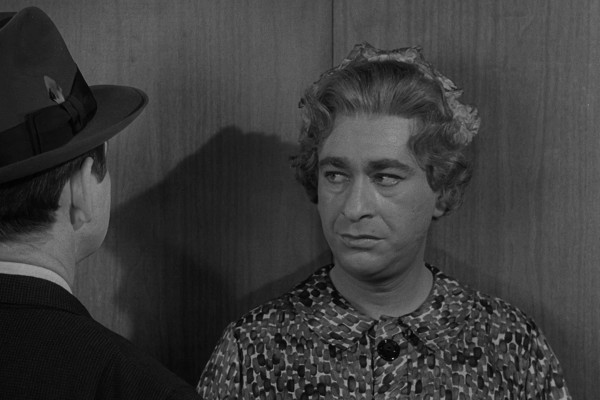
All of The Twilight Zone is dated, of course. And that's not a criticism. Any television production over 50 years old is going to have different tones of performance, pacing and structure... not necessarily bad, just different. This particular episode showcases comedian Shelley Berman as a man who despises people and removes the entire human race by the power of his mind. Eventually he succumbs to loneliness, and when an attempt to repopulate the world with copies of himself goes wrong - including some astonishingly poor close-ups of people with blank masks on - he puts things back how they were.
Of course, one frustration with a so-so Serling "comedy" episode is the central character's lack of imagination.... surrounded by stock music that tries to insist upon any "humorous" exchange, even when the entire world has vanished, all the lead can think to do is go to the office. It's amazing that an episode like this could be followed by something as good as Will The Real Martian Please Stand Up?, but even so, this is far from the worst of Rod's ill-advised forays into the world of comedy.
But it all comes back to the idea of fashions changing. Some of the older, slapstick comedy of the 20s and 30s still works on its own terms, but the farces of the 50s and 60s now look very antiquated, and not in a good way. Put on a selection of Berman's stand-up routines, such as one of his trademark "telephone calls", and it's very much a different era, a different performing style. Perhaps devoid of the cynicism that permeates modern comedy, for good or bad, it seem anachronistic when watched in 2017, and the reason why so many Serling comedy episodes seem to stall today is perhaps less to do with the low quality of his humour scripts and more to do with the adjustment in audience's perceptions...
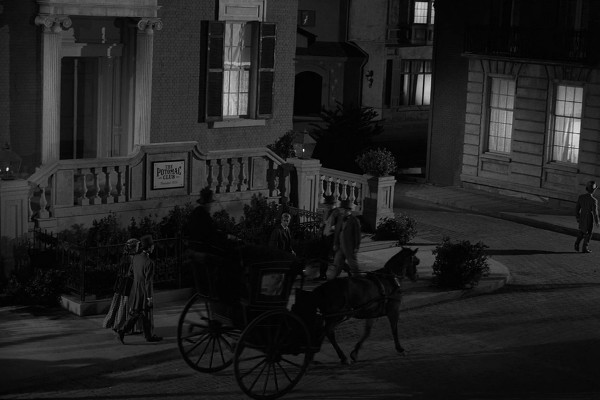
While Rod sitting in a gentleman's club to deliver his introduction is incredibly cool, his question of "whoever heard of a man going back in time?" is completely facile, as not only had it appeared in fiction for over a hundred years, but it had already happened in the series, too. Though to give the episode its credit, the characters within the narrative do then immediately reference H.G. Wells.
When I originally published an overview of season two for a Twilight Zone microsite, I singled this one out as not only the worst episode of the season, but also potentially the worst episode of the entire series. Frankly, I'm not sure why. Blasted as "a nonsense of stock SF clichés", while it's true that this time travel tale doesn't set the world alight with originality, it's also perfectly harmless and even a little engaging on occasion. The handkerchief "twist" is just rehashed leftovers from King Nine Will Not Return, and the lack of any explanation for how the time travel occurs is incredibly lazy, but this is more inoffensively below-par rather than objectionably awful. As seen here, while still ranked quite low, it doesn't even reach the bottom five of the season. Presumably I was just in a bad mood when I originally reviewed it all those years ago?
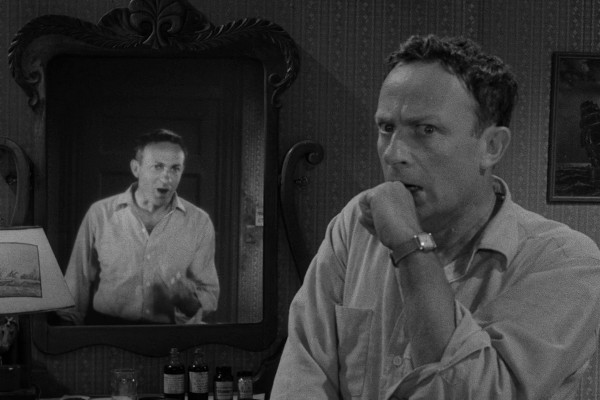
On paper this should be a great episode: a minimalist budget saver with just two actors, all set in one room about a man contemplating his life, death and the decision to murder for a gangland boss. Sadly, it doesn't quite come off, from campy central performances to a jazzy incidental score. There is some innovation here and there, such as the carefully staged sequences where the lead character has conversations with his "reflection". But then there's also lapses, such as an incredibly badly shot edit over seven minutes in that sees the characters in different positions, or a climactic "fight" that fails to convince. Serling's introduction is dubbed over the top of the action, as it seems not even Rod could enter this world of somewhat corny gangland villains. First-class title, but a third-rate episode.
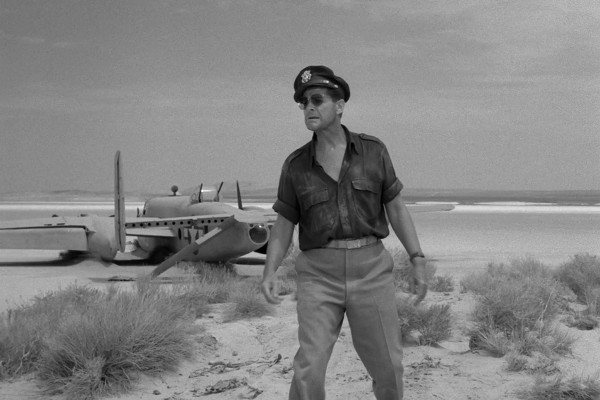
A lacklustre season opener, highly reminiscent of the season one's Where Is Everybody? in that it features a man alone, losing his mind. One notable difference is that Where Is Everybody? ultimately didn't contain any supernatural elements, something which must have bothered Serling as he added one when adapting the story for the book Stories From The Twilight Zone. There's no such shortcomings here, with sand found in a patient's boots for a "did he really travel to the desert while he was asleep?" climax. It may have been something fairly original then, but it's a "twist" that's been repeated in so many countless series, even shows like Happy Days, that it now seems trite and passé.
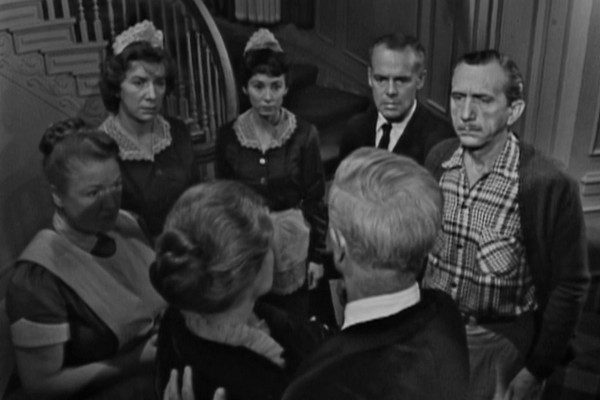
A very odd, offbeat videotaped episode, where the strangest sight is Irene Tedrow's orgasmic moans as she's given a massage by her robot maid. The Hitch-Hiker's Inger Stevens even explicitly refers to it, deriding her onscreen mother's "constant animal grunts of pleasure". The final series of twists are actually very good, but fail to prop up the episode on repeat viewings.
The "as live" shooting technique of the videotaped episodes even affects Rod's performance, as he's very obviously reading his introduction off cue cards. Speaking of Rod, then while he's an exceptional screenwriter at his best, he does have a tendency to overwrite dialogue that extends beyond his usual stage-like words and into overripe melodrama. It occurs badly here, and with the actors involved encouraged to give it their all, it comes over as the kind of production that could have been made in the 1930s, with performance codings that have little relevance today.
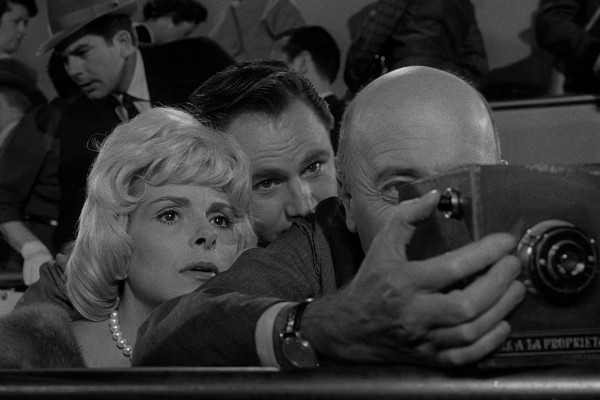
A Most Unusual Camera isn't a bad episode, but does smack of wasted opportunities. A criminal family steal a camera that takes photographs of the future, which is an inspired conceit... but one squandered when presented as a broad, knockabout comedy. This is not to say that it doesn't have merit on its own terms, but just that it could have been so much more. Another major distraction is that the episode is exceptionally badly edited. Look at how many times the positions of peoples' hands and bodies change between shots... film editor Bill Mosher worked on another 42 episodes, including some classics, so it has to be assumed that this was either an off day, or that he did the best he could with poorly shot material.